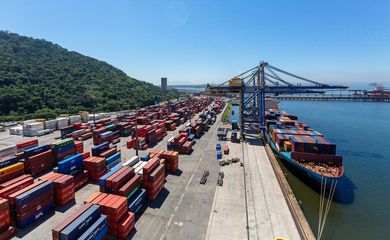Agência Brasil explains: what is known about the Ômicron variant

The National Health Surveillance Agency (Anvisa) released this week what is known, so far, about the Ômicron variant. Early observations indicate that it spreads more easily than the parent Sars-CoV-2 virus and variants such as Delta. In Brazil, so far, six cases have been confirmed, three in São Paulo, two in the Federal District and one in Rio Grande do Sul. There is still, according to the Ministry of Health, at least one case under investigation in São Paulo .

Most of the patients in question, according to the folder, are asymptomatic and have been placed in isolation. All infected people counted so far have completed the vaccination schedule against covid-19 and are considered imported cases, as they have been in places where the variant is circulating or are linked to someone who came from these locations. People close to confirmed cases are being monitored by health authorities in the three states in question.
Check out the main questions and answers and what is known about the Ômicron variant below:
Does Ômicron cause more serious illnesses?
According to the agency, more data is still needed to know whether infections with the variant cause more serious illnesses or more deaths than infections with other variants. It is also not known whether there will be reinfections and emerging infections in people fully vaccinated against covid-19.
Do vaccines work against Ômicron?
Anvisa has already asked developers of vaccines against covid-19 applied in Brazil to assess the impact of the variant on the effectiveness of their immunobiologicals. At first, it is believed that current doses should protect against serious illnesses, hospitalizations and deaths even in cases of Ômicron infection, which, according to the agency, further underscores the importance of complete vaccination and the booster dose, especially for the most vulnerable: the elderly, indigenous people, immunocompromised people, people with comorbidities and health professionals.
Do drugs fight Ômicron?
The agency informed that it is following international discussions on the subject, especially in relation to monoclonal antibodies. Scientists are working to determine how well existing treatments for covid-19 work in cases of variant infection. In principle, according to Anvisa, some treatments will likely remain effective, while others may be less effective.
Do masks work against Ômicron?
According to the agency, face masks offer protection against all variants of covid-19. For this reason, Anvisa continues to recommend the use of the mask, regardless of the person's vaccination status. Until more is known about the risk of Ômicron, it is important, according to the agency, to use all available tools to protect the population.
Surveillance
To better protect public health, Anvisa highlighted the importance of expanding genomic testing and surveillance to track variants of Sars-CoV-2.
Alert
Until more is known about the risk of Ômicron, the agency recalled that it is important to have peace of mind and to use all available tools for individual and collective protection. Anvisa reaffirmed the importance of vaccination and the use of non-pharmacological measures, such as the use of masks, social distance and hand hygiene. That's because covid-19 spreads through close contact with people who have the virus, even those who don't have symptoms.
Text translated using artificial intelligence.




